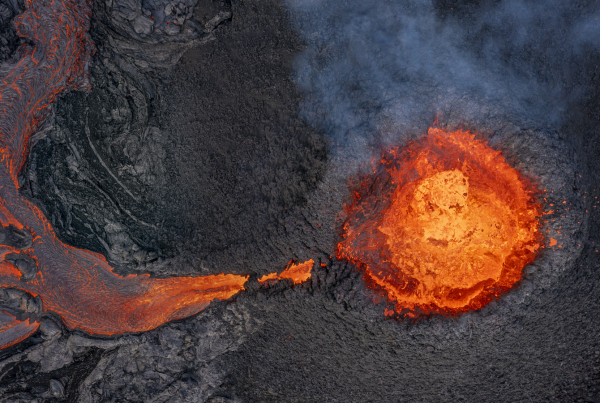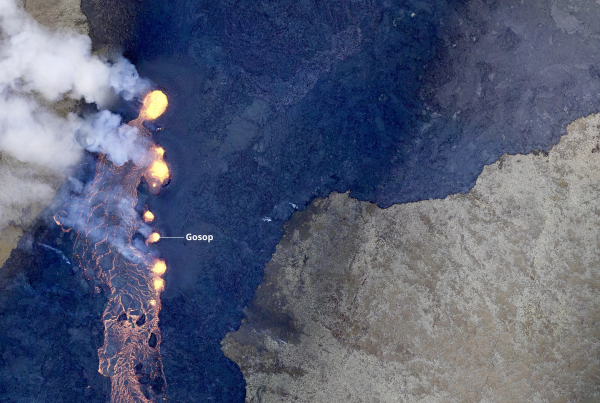If you plan to visit Iceland in the future or have already arrived in the country you might be aware about the relatively frequent volcanic activity the island experiences. Perhaps you are even feeling a bit concerned for your safety. Below we‘ve outlined some important information that explains why Iceland in particular is vulnerable to these natural occurrences and what you can do to stay safe should an event take place.
There are many active volcanos in Iceland and on average there is an eruption on the island every 5 years. This is just a part of life for Icelanders but it may seem a bit frightening to visitors. The volcanos in Iceland can be divided into 3 main types:
Strato (example: Eyjafjallajökull, Öræfajökull, Snæfellsjökull)
Central (example: Krafla, Askja, Grímsvötn, Katla)
Fissure (example: Eldvörp)
Volcanos can vary in structure and apperance based on their type but all volcanos are driven by pressure and heat. While volcanos can have devastating effects, a proper emergency response plan can mitigate many negatative effects and keep people safe from harm. If you find yourself in Iceland at the time of an eruption you can read about what to do below.

Volcanic eruption in Iceland’s Holuhraun in 2014
What do I do if there is an eruption?
· Have your cell phone turned on when travelling in Iceland as civil defense will send out an SMS warning to evacuate if you are in the vicinity of the erupting volcano.
· If you are outside, go indoors but if you are unable to do so cover your nose and mouth with a handkerchief or cloth.
· Only call 112 if you have an emergency as otherwise the phone lies can get tied up with non-emergency calls.
· If you are forced to go outside cover as much of your body as possible using clothing, glasses, etc.
· Stay out of the restricted areas. Its not worth endangering your life for a photo or a closer look.
Stay up to date on Iceland´s volcanos by keeping an eye out for SafeTravel information screens at travel hubs around the country or by checking safetravel.is for alerts. Additionally, you can get updates on area specific volcano guidelines at information centres such as the SafeTravel desk in the Reykjavík City Hall (Ráðhúsið).



